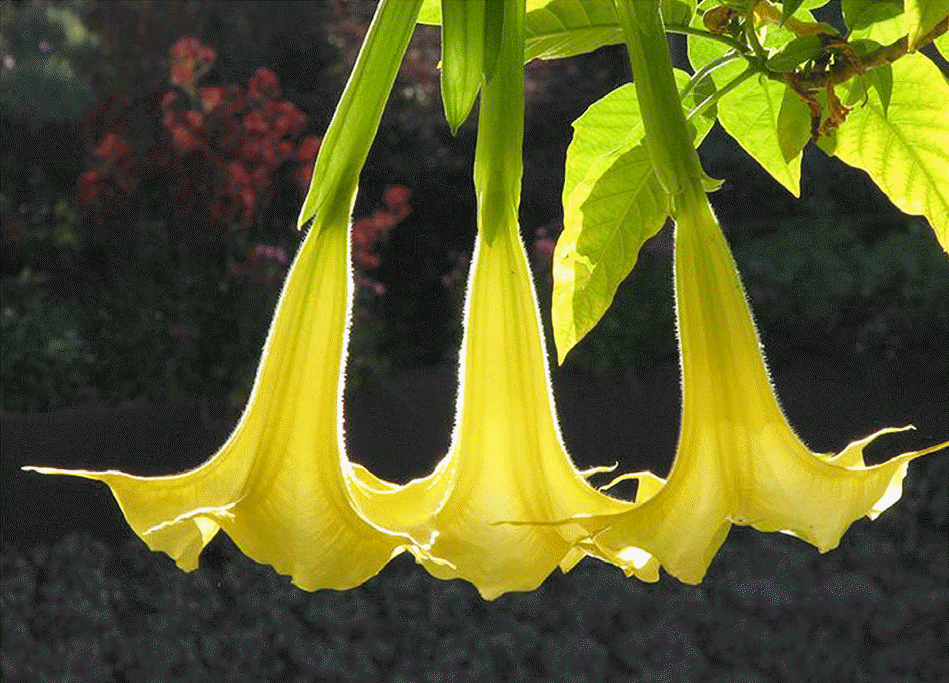Abstract
Purpose
To report a case of unilateral mydriasis after accidental exposure to an Angel's trumpet leaf.
Case summary
A 53-year-old woman visited the Eye Department complaining of blurred vision and difficulty in light adaptation in the left eye of 1-week duration. The best corrected visual acuity was 20/20 in both eyes and other ophthalmological findings were considered normal except for dilation of the left pupil and a decrease in light reflex. The patient was initially unaware of any cause of her eye problems, but when asked specifically, the patient remembered an Angel's trumpet leaf brushing against her left eye when she carried the plants. There were no other previous medical or drug histories, thus the Angel's trumpet was considered as the cause for the unilateral mydriasis. The patient's progress was followed for a week, her symptoms improved and the pupil size and reflex returned to normal.
Conclusions
The cultivation of Angel's trumpet has become increasingly popular in Korea in recent years. The present case emphasizes the importance of an accurate and detailed history regarding specific contact history with plants like Angel's trumpet in otherwise healthy patients affected by unilateral mydriasis.
References
1. Wilhelm H, Wilhelm B, Schiefer U. Mydriasis caused by plant contact. Fortschr Ophthalmol. 1991; 88:588–91.
2. Rosen NB. Accidental mydriasis from scopolamine patches. J Am Optom Assoc. 1986; 57:541–2.
3. Macchiaiolo M, Vignati E, Gonfiantini MV, et al. An unusual case of anisocoria by vegetal intoxication: a case report. Ital J Pediatr. 2010; 36:50.

4. Ryan CA. Ipratropium bromide induced unilateral mydriasis. Ir Med J. 1997; 90:76.
5. Nussdorf JD, Berman EL. Anisocoria associated with the medical treatment of irritable bowel syndrome. J Neuroophthalmol. 2000; 20:100–1.

6. Polomský M, Smereck J. Unilateral mydriasis due to hemorrhoidal ointment. J Emerg Med. 2009 Jul 11. [Epub ahead of print].

7. Roemer HC, von Both H, Foellmann W, Golka K. Angel's trumpet and the eye. J R Soc Med. 2000; 93:319.

8. Havelius U, Asman P. Accidental mydriasis from exposure to Angel's trumpet (Datura suaveolens). Acta Ophthalmol Scand. 2002; 80:332–5.

9. Firestone D, Sloane C. Not your everyday anisocoria: angel's trumpet ocular toxicity. J Emerg Med. 2007; 33:21–4.

10. Andreola B, Piovan A, Da Dalt L, et al. Unilateral mydriasis due to Angel's trumpet. Clin Toxicol (Phila). 2008; 46:329–31.

11. Isbister GK, Oakley P, Dawson AH, Whyte IM. Presumed Angel's trumpet (Brugmansia) poisoning: clinical effects and epidemiology. Emerg Med (Fremantle). 2003; 15:376–82.

12. Sevketoglu E, Tath B, Tugcu B, et al. An unusual cause of ful-minant Guillain-Barre syndrome: angel's trumpet. Pediatr Neurol. 2010; 43:368–70.




 PDF
PDF ePub
ePub Citation
Citation Print
Print



 XML Download
XML Download